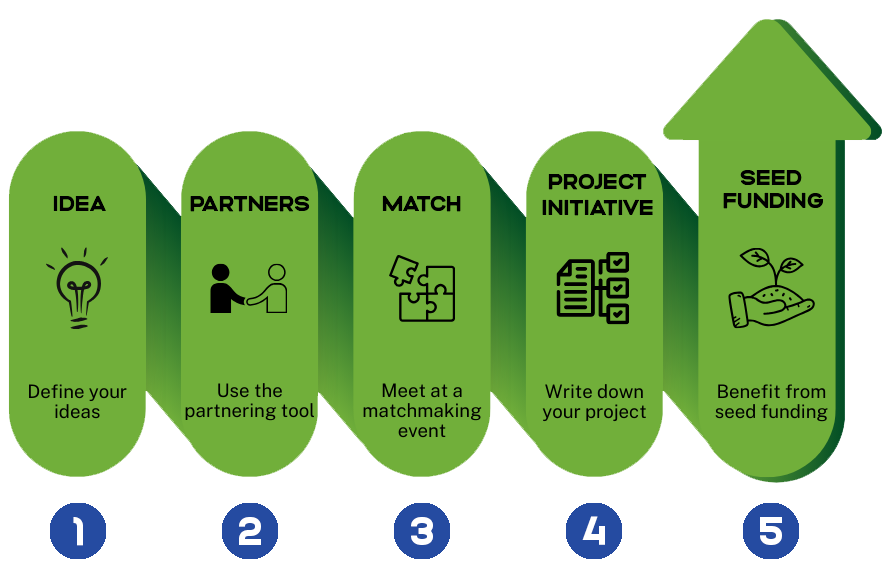SEED FUNDING PROGRAMME
Call for applications opens on 30 June until 30 September 2025
24 September 2021 | Vytautas Magnus University, Lithuania
About
One of the alliance’s key goals is to develop a new and comprehensive joint academic portfolio across all three study cycles. This means developing customised transdisciplinary study and training programmes that integrate the transformative knowledge-entrepreneurialism perspective into all education and training activities and making it a cornerstone of active European citizenship. To bring this vision to life, the Transform4Europe seed funding programme supports collaborative bottom-up activities and co-creative initiatives among partner universities.
Jump to ‘How to Apply’ now section and help shape the future of European higher education! Or discover the answers to the most Frequently Asked Questions.

OBJECTIVES
The Transform4Europe seed funding programme provides financial support for initiatives or projects involving a minimum of two institutions within the alliance.
You can find some examples of initiatives that could be funded below:
- Creation of seamless mobility schemes.
- Endeavours aiming to enhance vertical mobility.
- Development of new joint study offers.
- Development / Establishment of micro-credentials.
- Development / Establishment of joint PhD programmes.
- Development / Establishment of PhD tracks.
- Development / Establishment of lifelong learning offers
- Further joint initiatives and projects (e.g. initiated by a T4EU Transformation-Lab).
Examples of T4EU focus areas and values:
- Projects considering environmental transformation.
- Projects supporting societal transformation, community building, inclusion and diversity, e.g. in the field of common heritage, multilinguals and university cooperation with the cultural sector.
- Projects in line with digital transformation and smart regions.
All projects are expected to set forth a convincing path towards the creation of sustainable joint educational offers after the completion of the seed funding projects, be it single courses or joint study programmes.
FUNDING LINES
The Transform4Europe Seed Funding Programme provides financial support for initiatives that aim to develop or explore new joint educational offerings.
Discover the available funding lines below.
For projects running over 12 – 14 months
Funding lines:
A) Explore teaching and learning collaboration in all 3 study cycles and lifelong learning:
– Explore and establish contacts for teaching & learning collaboration consortia.
– Well-defined collaboration ideas and next steps towards the creation of mobility windows and/or joint/collaborative courses / PhD tracks / micro-credentials.
B) Develop teaching and learning collaboration in all 3 study cycles:
– Mobility windows, and/or
– Joint/collaborative courses/ PhD tracks / micro-credentials and/or
– New formats of collaborative teaching.
– Path towards Joint Programme (study cycles 1-3 or lifelong learning) clearly defined.
For projects running over 6 – 8 months
Funding lines:
C) Explore and/or further develop (existing) collaboration in teaching and learning:
– Explore and establish contacts for teaching & learning collaboration consortia.
And / or
– Well-defined collaboration ideas for the next steps towards the creation of joint/collaborative courses / training offers / PhD tracks and/or mobility windows.
Or
– Integrate one (or more) additional partner(s) into an existing collaboration
GRANT AMOUNTS
| Funding lines | Maximum grant amount (= 80% of the total project costs) |
| A) Explore teaching and learning collaboration | € 10,000 |
| B) Develop teaching and learning collaboration | 2 participating universities: € 15,000 3 or more participating universities: € 22,000 |
| C) Explore and/or further develop (existing) collaboration in teaching and learning | € 5,000 for each step |
Please note that the T4EU seed funding grant will cover no more than 80% of the project costs. Applicants must finance 20% of the costs as own contribution, typically provided in the form of staff cost / working hours or other in-kind contributions. Each university adheres to its own national rules and regulations, for example regarding salaries, investments and travel costs. Please contact your local T4EU team to find out more about the specific regulations that apply to you. More information on eligibility criteria can be found in the budget template, which must be provided with the application form.
SEED-FUNDING CALENDAR
Call publication: 30 June 2025
Submission deadline: 30 September 2025
Jury meeting: Mid-November 2025
Notification of applicants: End of November
Implementation: From beginning of December (Project runtime 12-14 months)
Call publication: December 2025
Submission deadline: Mid-March 2026
Jury meeting: End of April 2026
Notification of applicants: Beginning of May 2026
Project implementation: From May 2026 (Project runtime 12-14 months)
Call publication: Beginning of May 2026
Submission deadline: Mid-July 2026
Jury meeting: Beginning of September 2026
Notification of applicants: End of September 2026
Project implementation: October 2026-May 2027 (Project runtime 6-8 months)
TOOLS
To facilitate communication among academic staff members within the alliance, various tools are available. These include funds dedicated to organising and attending matchmaking events for academic staff across the alliance. Additionally, the alliance’s partnering tool connect4research can help you find suitable project partners:
1. Connect4Research TOOL
A digital platform designed for connecting the academic community across the alliance, not only for joint research purposes, but also for joint educational projects. Connect4Research is mandatory for applying in the T4EU seed funding programme.
2. Matchmaking events
A T4EU matchmaking event is a structured networking opportunity, where researchers and teaching staff can connect with like-minded individuals, potentially sparking new collaborations in research, teaching or other funding projects.
3. Information sessions
T4EU is organizing two online information sessions
- 23 July 2025
- 20 August 2025
If you would like to attend the virtual session, please email t4eu-seedfunding@uni-saarland.de to receive the meeting link. The sessions will be recorded and made available on the website afterward.
HOW TO APPLY
Project proposals should be sent to t4eu-seedfunding@uni-saarland.de. Please cc your local T4EU team into your application.
APPLICATION MATERIALS
Transforming Curricula Toolbox
You can download the ‘Transforming Curricula Toolbox’ below—a set of guiding documents outlining the requirements for developing joint educational offerings.
SELECTION CRITERIA
Relevance and impact:
- Contribution to the relevant KPIs and milestones of the T4EU initiative
- Number of students / lifelong learners benefitting from the offer
- Sustainable integration into the institutions’ regular study offer
- Transferability to other study programmes and / or disciplines
- Funding is open to subjects and topics from all academic fields. However, priority will be given to initiatives addressing the alliance’s focus areas (social, digital and environmental transformation; knowledge entrepreneurialism).
- Alignment with T4EU values (multilingualism and interdisciplinarity)
Quality of the proposal – project design and implementation:
- Clear description of the path towards a long-term offer (master’s programmes typically bearing 60 – 120 ECTS, bachelor programmes typically bearing 180 – 240 ECTS)
- Realistic and thought-through planning
- Adequate personnel resources available
- Reasonable budgeting
CONTACT
All frequently asked questions are addressed in our FAQ section. For any additional inquiries, please don’t hesitate to contact the seed funding team under t4eu-seedfunding@uni-saarland.de.















